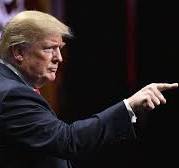I've been struggling with this question recently:
Question: I prompt an AI into generating something; who created it?
I can think of arguments in quite a few directions:
I created it: The AI is an advanced tool (like a computer) that allows me to generate things which I could not generate otherwise. Analogously, a spreadsheet does not spontaneously appear, but I can prompt my computer into making a spreadsheet by pushing keys and making mouse movements. Despite not filling in every single cell in the spreadsheet myself (getting the computer to infer cell contents), a reasonable person would still say that I created the spreadsheet (even if my computer generated 99% of its contents). What the AI generates, it likewise could not generate without my prompting. I instruct the AI on what to do, like how I instruct the spreadsheet.
(Also, if I were to prompt the AI into generating something illegal, I think most people would assume I would be the person to go to jail, and not the AI itself, or someone else.)
The AI created it: The AI utilizes (artificial) neurons and plays an active role in ultimately deciding its output; it is the last step in the process. The AI hardware (probably some GPU in a server somewhere) expended energy to create it. It was generated based on knowledge that I don't possess, via into an artificial neural network I'm incapable of comprehending. The given prompt is no more help than, say, a writing prompt is in writing a novel.
(This gets even more confusing if I created the AI...)
Billions of contributors created it: The AI went through training on vast corpora of data, and the AI output is a selective combination of previously made contributions by a vast number of contributors. Moreover, the AI was built using computer science developed over decades, on hardware which has been developed since the advent of science. It's not "standing on the shoulders of giants", but "1000 ants, one on top of another". Likewise, a car is made of many interdependent and sophisticated parts, so no one person can makes a car from scratch (e.g. a pile of iron ore).
Or maybe...
The AI's engineers created it: The software engineers created a generative tool, so what that tool generates is, indirectly, generated by the software engineers, despite being operated by another party.
(This argument seems flimsy. Did the developers of C++ likewise make all C++-developed software? But maybe AI is a distinct concept.)
I'm hoping I can straighten out these thoughts, and choose the most pertinent arguments.

